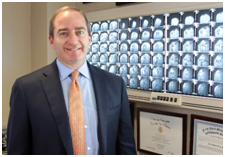
Shoulder Pain Specialist New York


New York Sports Medicine Institute | Orthopedics is committed to excellence by providing the highest quality of orthopedic and sports medicine care. Along with the treatment of immediate or chronic problems, NYSMI strives to integrate the doctrine of prevention in all treatment plans as a way to alleviate future difficulties. Our Shoulder Pain Specialist in New York can help you live your life without pain. Contact us today for more information!
NYSMI serves patients 3 years old and up, with treatment and surgery for orthopedic and sports injuries, to alleviate shoulder, knee, hip, and various other pains, from the mild to the severe.
Meet Our Shoulder Pain Specialist in New York – Dr. Neil S. Roth
WHAT CONDITIONS CAN A Shoulder Pain Specialist in New York TREAT?
New York Sports Medicine Institute provides a wide range of highly specialized treatments to properly evaluate and treat sports-related and chronic conditions affecting the shoulder, knee, hip, elbow, hand, wrist, foot, and ankle. Sports injuries are often caused by trauma suffered during competition and repetitive or overuse wear and tear. Chronic conditions may include arthritis, age-related deterioration, or any number of factors related to use or associated health issues.
When surgery is required, NYSMI offers minimally invasive arthroscopic surgery for a number of conditions related to injury of the shoulder, knee, hip, elbow, foot, ankle, hand, and wrist. Our orthopedic surgeons are also highly regarded for providing hip, knee, and shoulder total joint replacement.
Physical therapy is frequently prescribed for the treatment of sports injuries and chronic injuries that may not require orthopedic surgery. Physical therapy is also prescribed to ensure optimal healing and training following some orthopedic surgery procedures. For a number of patients, conducting physical therapy at the New York Sports Medicine Institute provides convenience and comfort – a visit to one location serves multiple needs and provides comprehensive care to keep you in the game.
Click to learn more about specific services and ailments
WHAT DOES A Shoulder Pain Specialist in New York DO?
Are you curious to know what a highly skilled orthopedic surgeon is able to do? This particular medical profession is often considered one of the most cutting-edge and in-demand fields in the industry. Not only can an orthopedic surgeon treat various injuries and traumas with both surgical and non-surgical techniques, but some even specialize in certain areas of the body. As the founder of New York Sports Medicine Institute, Dr. Neil S. Roth is a highly acclaimed board-certified orthopedic surgeon who specializes in the area of comprehensive sports medicine, shoulder, elbow, and knee surgery. He has been recognized by New York Magazine as one of New York’s best doctors, as well as Castle Connolly’s top doctors in the New York Metro area. Amongst the list of prestigious doctors, Dr. Roth takes great pride in the acknowledgment of his entire team’s high level of expertise. If you have been looking for a highly distinguished shoulder pain specialist in New York, contact us at New York Sports Medicine Institute. We offer extensive sports medicine treatment, orthopedic surgery, concussion care, and physical therapy at both our Westchester and New York City locations. We recommend you learn more about the various concentrations of orthopedic surgery and how it can help you.
Orthopedic Concentrations
Orthopedic surgery can be used to help treat patients with a wide variety of injuries or other related traumas. Some of the most common conditions orthopedic surgery can help treat may include the following:
- Shoulder Injuries such as:
- Rotator cuff tears.
- Tendonitis and bursitis.
- Arthritis of the shoulder.
- Frozen shoulder.
- Shoulder instability.
- Fractures.
- General shoulder pain.
- Knee injuries such as:
- ACL, MCL, and PCL injuries.
- Meniscus Tear.
- Osteochondritis Dissecans (OCD) of the knee.
- Articular cartilage injury.
- Autologous chondrocyte implantation (ACI).
- Total and partial knee replacement.
- Arthritis of the knee.
- General knee pain.
- Elbow conditions such as:
- Tennis elbow.
- Ligament construction of the elbow.
- Elbow dislocation and instability.
- Osteochondritis of the elbow.
- Hip injuries such as:
- Fractures and tears.
- Hip impingement (FAI).
- Snapping Hip.
- Arthritis of the hip.
- Hip replacement.
- Foot & Ankle conditions such as:
- Sprains, strains, and fractures of the foot and ankle.
- Arthritis of the foot and ankle.
- Tendonitis of the foot and ankle.
- Hand & Wrist complications such as:
- Fractures of the wrist or fingers.
- Tendonitis of the wrist.
- Ganglion cysts.
- Arthritis of the hand and wrist.
- Carpal tunnel syndrome.
The Difference at New York Sports Medicine Institute
At NYSMI, our team is highly specialized in performing orthopedic surgery and treating the above-listed injuries and conditions. Through our expertise, we strive to help each and every one of our patients restore normal and pain-free function back to the affected area. If you have been searching for a skilled shoulder pain specialist in New York, contact us at New York Sports Medicine Institute. We want to provide you with the best care possible to get you back to feeling your best!
Orthopedic Surgeon Expertise
Since people tend to visit an orthopedic surgeon when their condition has gotten to a more severe or painful stage, orthopedic surgeons primarily focus on proper diagnosis and treatment for patients.
Diagnosis & Treatment
The various diagnostic tools orthopedic surgeons commonly use involve physical examinations, imaging studies, and lab tests. Treatment options can include both surgical and non-surgical procedures such as:
- Arthroscopic surgery – a surgical procedure using a tiny camera to see inside of a joint, used in different areas of the body.
- Open shoulder instability surgery.
- Rotator cuff surgery.
- Physical therapy treatment.
- Total or partial replacement of the shoulder, hip, or knee.
Depending on your particular injury or severity of your condition, different types of treatment plans may be recommended. It’s important to schedule an appointment with an orthopedic surgeon as soon as an injury takes place or a condition develops.
The Requirements
In order to become a board-certified orthopedic surgeon, there are several different accreditations you must first achieve. You must complete a four-year undergraduate program specifically comprised of one year of biology, one year of physics, and two years of chemistry. Then, followed by an additional four years of medical school and a post-graduate residency program. The residency program focuses solely on the specialty of orthopedic surgery. This allows prospective surgeons to get hands-on, practical exposure to the various surgical techniques and technologies used in this particular medical concentration.
The founder of New York Sports Medicine Institute, Dr. Neil S. Roth, is both a board-certified orthopedic surgeon, sports medicine doctor shoulder pain specialist in New York. He received his undergraduate degree from Duke University School of Medicine in Durham, North Carolina. He went on to complete his postgraduate studies and residency program at Columbia-Presbyterian Medical Center. Amongst the list of accreditations, Dr. Roth has also completed a fellowship in Sports Medicine at the world-renowned Kerlan-Jobe Orthopedic Clinic where he served as an assistant team physician for the Los Angeles Lakers, Dodgers, Kings and Angels, the Anaheim Ducks, and the University of Southern California. His high level of expertise and wide-set knowledge on the subject of sports medicine has set him apart as a skilled orthopedic surgeon.
RECENT BLOG POSTS FROM OUR Shoulder Pain Specialist in New York
WHAT’S THE DIFFERENCE BETWEEN THE AC JOINT AND THE SHOULDER JOINT?
 Kyrie Irving will reportedly be lost to the Cavaliers once again, this time with an acromioclavicular (AC) sprain suffered in the third quarter of Sunday’s game. It was estimated that he would miss three to four weeks of action.
Kyrie Irving will reportedly be lost to the Cavaliers once again, this time with an acromioclavicular (AC) sprain suffered in the third quarter of Sunday’s game. It was estimated that he would miss three to four weeks of action.
For many players, that is an optimistic timeframe, though the accuracy of this prognosis also depends on the severity of the injury (not known as of this writing). However, Irving, who has had a rash of injuries in his short NBA career, has a history of relatively quick comebacks. That may have something to do with being 20 years old!
Cleveland is 8-21 with Irving on the bench, winning just four of 10 this season. With the Cavaliers not headed to the playoffs, it seems pointless to push Irving back on the court for just the final few games of the regular season. It would be understandable were the circumstances different.
It’s better to take a longer view on this one.
As for any sprain, Irving’s injury will be graded from one to three, with a Grade 1 being a mild stretch of the ligaments that stabilize the joint, a Grade 2 causing more significant disruption and a Grade 3 being a complete rupture of the AC ligaments.
The difference between the AC joint and the shoulder joint
The AC joint and the shoulder joint are not one and the same, though they are often referred to interchangeably. Both are a part of the shoulder girdle. The AC joint, or acromioclavicular joint, is the connection between the outer end of the collarbone (clavicle) and the bone that is like a hood over the shoulder joint called the acromion. The acromion is an extension of the shoulder blade (scapula). The shoulder joint (also called the glenohumeral joint) is formed between the upper arm bone (humerus) and its socket (the glenoid fossa), which is also an extension of the shoulder blade. Though the shoulder is the more complex joint, and can therefore suffer a more extensive variety of injuries, the AC joint is also important to the overall mechanics of the shoulder girdle. An unstable (too loose) or restricted (too tight) AC joint can cause pain, a decline in function, abnormal movement and a number of shoulder problems.
HOW DO I KNOW IF I HAVE A ROTATOR CUFF INJURY?

Rotator cuff injuries are extremely common, but can often go undiagnosed. Some patients may not even be fully aware of where the rotator cuff is located precisely. A rotator cuff is essentially a group of muscles and tendons that keeps your upper arm bone firmly in its shoulder socket. Individuals who have had rotator cuff injuries can attest to how painful and debilitating it can be, even when you’re only doing everyday activities. In order to know if you do in fact have a rotator cuff injury, it’s vital to understand whether or not you’re at risk, what the common causes are, and the types of symptoms you should be monitoring. If you’ve been dealing with discomfort and pain in your rotator cuff and have been searching for shoulder pain specialist in New York, contact us at New York Sports Medicine Institute. We offer both orthopedic care and physical therapy treatments for our patients to help them get back on track. Continue reading if you want to learn more about rotator cuff injuries and how you can detect whether you have one or not.
Who is at Risk?
Being that the rotator cuff is responsible for keeping your arm bone stabilized in the shoulder socket, individuals who perform repetitive motions with their arms can be at risk of developing a rotator cuff injury. Some examples include carpenters, painters, and those who are lifting objects repeatedly. Those who play sports such as baseball, tennis, and wrestling, which involve constant repetitive arm motions, are also at risk for a rotator cuff injury to occur. As patients age, their risk for developing this type of injury also increases, making older individuals much more susceptible to rotator cuff injuries.
Common Causes
Some of the common causes of rotator cuff injuries can vary, depending on the severity of your particular injury. Rotator cuff injuries are typically broken down into three distinct categories, such as:
- Tendonitis – a condition that can occur if the rotator cuff is being overused, causing inflammation in the tendons.
- Bursitis – caused by inflammation of the bursa, or fluid-filled sacs in between the rotator cuff and the arm bone.
- Rotator cuff strains or tears – this can be caused by an acute injury or overuse of the rotator cuff over time. This occurs when the tendons that connect muscles to bones becomes overstretched or even torn. This type of rotator cuff injury typically causes immediate and severe pain.
Symptoms of a Rotator Cuff Injury
It’s important to note that not all rotator cuff injuries lead to the development of pain. Some rotator cuff injuries can be the result of certain conditions that build up over a period of time. That being said, some common types of symptoms associated with rotator cuff injuries may include the following:
- The weakening of the shoulder.
- Tenderness or pain when trying to reach overhead.
- Pain in the shoulder, which is heightened at night.
- Difficulty sleeping on the afflicted shoulder.
- Loss of full range of motion in the shoulder and/or arm.
- Deep to dull aches in the shoulder and/or arm.
- Unable to carry out normal activities due to pain or discomfort.
If you have been experiencing any of these symptoms for a duration lasting longer than a week, it’s crucial you visit an orthopedic surgeon.
Diagnosing a Rotator Cuff Injury
A doctor will be able to determine and diagnose your rotator cuff injury by conducting a physical examination, analyzing previous medical history, and utilizing various imaging scans. These scans can include:
- X-rays.
- Magnetic resonance imaging (MRI).
- Ultrasounds.
Your orthopedic surgeon will be looking to see what your arms range of motion is like if there are any tears present, and whether other conditions such as arthritis, can be ruled out.
Treatment Options– shoulder pain specialist in New York
If you are diagnosed with a rotator cuff injury, there are several different treatment plans available. These options can range from home remedies to surgery depending on the extent of your injury.
Non-invasive treatment methods have been reported to help improve symptoms by nearly 50%. These various treatments consist of:
- Applying cold or hot packs to reduce swelling and inflammation.
- Resting the affected shoulder and wearing a sling for added support.
- Exercising to help restore and improve your arms range of motion.
- Over-the-counter anti-inflammatory medications, such as ibuprofen.
- Physical therapy.
Other forms of treatment, such as surgery and injections, are typically recommended for those who have a much more severe rotator cuff injury. Steroid injections into the shoulder joint can provide temporary relief, but should not be used frequently as they can weaken your tendons. When it comes to surgery, there are various different kinds that can be performed depending on the type of rotator cuff injury you may have developed.
How to Prevent Future Rotator Cuff Injuries
Preventing rotator cuff injuries from happening in the future is possible. If you have had a previous rotator cuff injury, it’s important to consult with your physical therapist so they can provide you with daily stretches and exercises to help strengthen your shoulder. If you have been looking for shoulder pain specialist in New York, visit us at New York Sports Medicine Institute. Not only do we offer superlative shoulder pain specialist in New York, but we also have highly-experienced physical therapists who work one-on-one with our patients to ensure they stay injury-free. Other prevention methods can consist of taking a break from playing strenuous sports or avoiding repetitive motions involving the arm and shoulder.
Contact Our Shoulder Pain Specialist in New York
If you have been experiencing pain in your rotator cuff and think you might have an injury, contact us at New York Sports Medicine Institute. Our shoulder pain specialist in New York are highly-experienced in handling these types of injuries and can help provide you with the appropriate treatment plans necessary. So don’t wait, contact us today to schedule an appointment!


